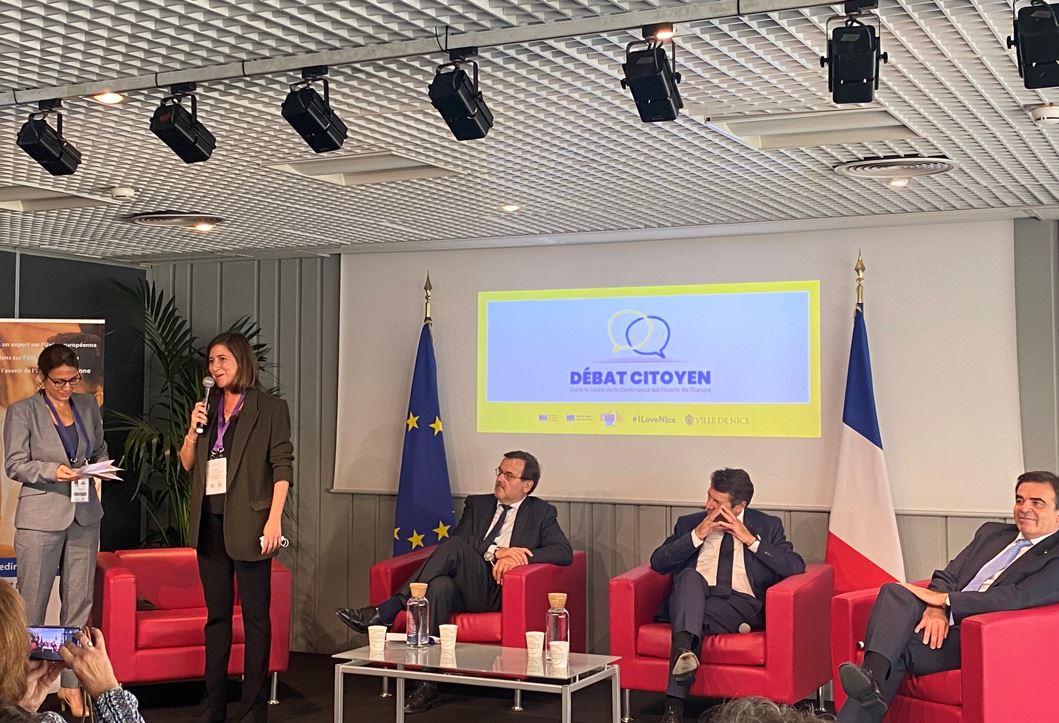Paris, April 2020 – On the occasion of Efus’ General Assembly meeting, an online working session was organised for members on 17 March to discuss three of the topics that will be addressed at the upcoming international Security, Democracy and Cities conference (20-22 October): safety audits and the strategic approach to urban security, organised crime, and discriminatory violence.
Below is a brief presentation of each theme and the main points of the meeting, which was organised in three parallel working sessions. We invite you to read the detailed minutes on Efus Network here. For those who didn’t attend, we are keen to hear your views, concerns, promising practices and contribution ideas in the run-up to the conference, a key moment in our network’s life. Stay tuned on our dedicated webpage here.
Working session 1: Efus’ updated Safety Audit Guide and strategic approach to urban security

The aim of this session was to discuss the strategic approach to urban security long promoted by Efus, which seeks to address security issues in a holistic manner, taking into account all the factors of both insecurity and security and associating all the relevant stakeholders, including civil society.
One of the key aspects of this approach consists in auditing the security situation of a territory. Following the AUDITS European project and resulting publication Methods and Tools for a Strategic Approach to Urban Security in 2016, Efus is in the process of enriching and updating its guidance on audits, notably through its current work as the leader of the IcARUS project and a partner of the Cutting Crime Impact project.
> Find our space dedicated to the strategic approach to urban security on Efus network (for members)
Working session 2: organised crime

The aim of this session was to discuss the local causes and impacts of organised crime and how local and regional authorities can respond by developing local strategies and working in partnership with government agencies and the police but also with other local and regional authorities as well as local businesses and civil society.
A number of Efus member city representatives shared their experiences of the local impact of this global phenomenon and inspiring responses, such as the ‘trace, freeze, manage and confiscate proceeds of crime’ approach, the dissemination of a culture of legality at school and in society, the sharing of data and information, and improving collaboration with the police.
It is to be noted that Efus has a working group on this issue, which is co-led by the cities of Amsterdam and Rotterdam and explores in particular three themes that will be discussed at the Security, Democracy and Cities conference: organised crime and the legal economy; organised crime in European port-cities; trafficking in human beings.
Working session 3: preventing discriminatory violence

The aim of this session was to provide an overview of the current situation of discrimination and crime victimisation experiences in Europe and discuss how local authorities can tackle this issue and make cities safer for all.
The first EU-wide survey shows that 6% of the EU-27 population, or 22 million people, experienced physical violence, and 29%, or 110 million, experienced harassment in the 12 months preceding the study. Efus member city representatives shared their experiences by highlighting the importance of a comprehensive evidence-based response at the local level, the need to improve cross-sector cooperation and primary prevention as well as training programmes for practitioners and relevant stakeholders to better recognise and respond to discriminatory violence.This session also further helped Efus’ Working Group on this issue to identify key priorities and recommendations for preventing discriminatory violence at the local level, which will be further developed within the working group and in light of the international Security, Democracy and Cities conference.
> Read the minutes of the conference
> Efus invites all is members to discuss these and others issues at the international Security, Democracy and Cities conference on 20-22 October 2021




